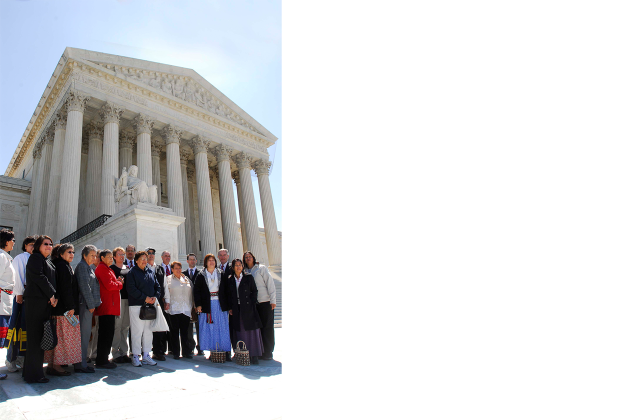“The looming question of whether the state has authority to tax the income of citizens of the Five Tribes who live and work within their reservation boundaries could end up before the U.S. Supreme Court, Oklahoma Supreme Court justices and parties’ attorneys hinted during oral arguments today in Stroble v. Oklahoma Tax Commission.”
Article written by Tristan Loveless linked below:
